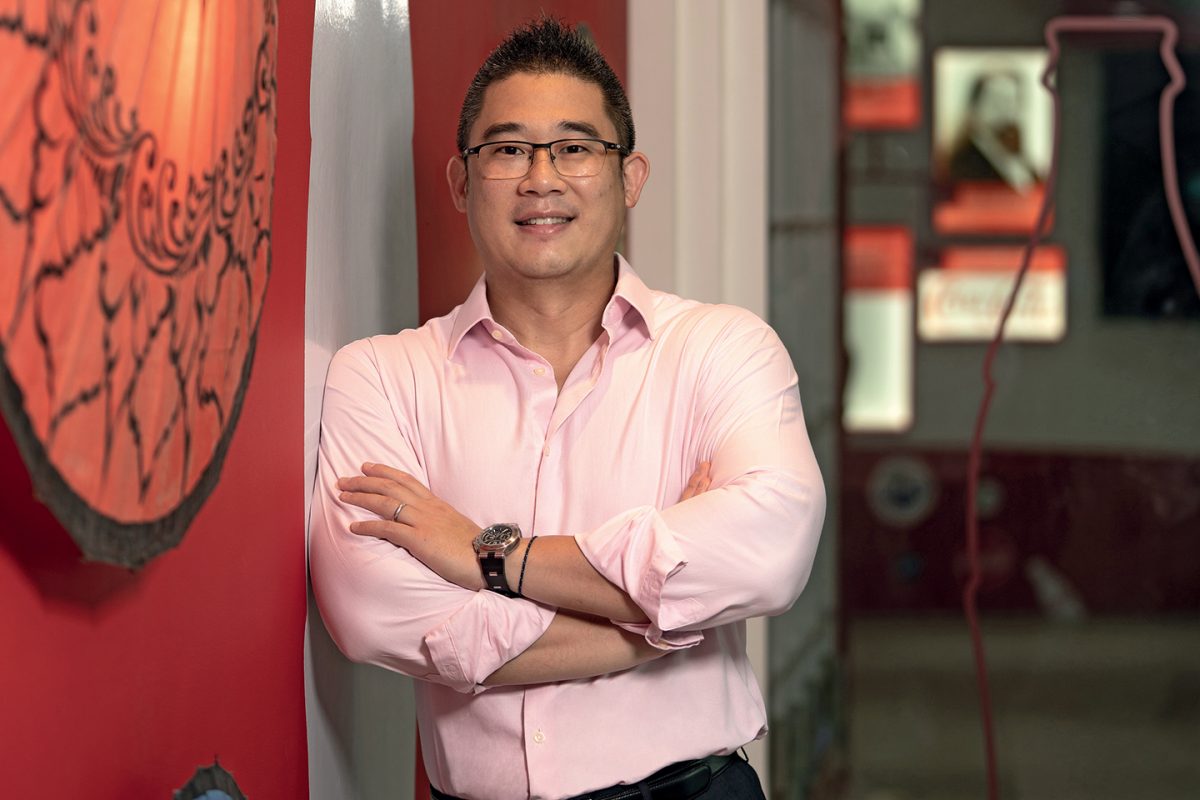“We see a lot of opportunities ahead.”: Victor Wong
Coca-Cola Pinya Beverages Myanmar CEO Victor Wong talks innovation, sustainability and setting an industry benchmark for the country.
Coca-Cola Pinya Beverages Myanmar recently celebrated its seventh anniversary – a significant milestone for a few reasons. Firstly, when the company opened its bottling plant in 2013, it wasn’t the first.

Coca-Cola had left Myanmar for more than 60 years while the South-East Asian nation faced decades of repressive policies and military rule. When sanctions were lifted and the soft drink giant returned, it was a historic occasion, bringing optimism for a brighter future. Its significance also lies in a local belief.
"Seven represents luck in Myanmar. It’s a very important year for our associates," CEO Victor Wong says. "And as we celebrate our seventh anniversary, we would also like to reinforce our long-term commitment to invest in the country, to continue building our local capabilities, and play a part in the overall growth of its economy. Myanmar is an important market for us and we see a lot of opportunities ahead."
With a population of more than 54 million and an economy that’s growing rapidly, Myanmar is certainly ripe with possibility. "The entire trade industry has been booming since the country opened up and it’s only going to continue to accelerate," he says.
"As consumers become more affluent, their needs and desire for beverage choices will also evolve. As a global beverage company, that presents a great opportunity for us to provide a wider range of beverage options – categories, brands, packs – for consumers targeting different consumption needs."
When Coca-Cola first re-entered the Myanmar market, its portfolio consisted of sparkling beverages and water. It has since evolved to become a major player in six categories with 22 brands and roughly 60 SKUs.
"We have good choices on offer," Victor reveals. "We have sparkling beverages, water, energy drinks, juices, and a value-added dairy brand as well. Max+, our very well-known local sparkling brand, is the market leader, while brand Coca-Cola has made significant progress over the years."
Looking towards the future, Victor says that "focus" will play a vital role in the company’s ongoing success. "The key theme over the next 12–18 months will be focus, especially given the after-effects of COVID-19," he explains.
"We will need to be more prudent with our investment choices and continue to step up our execution in the marketplace." At Coca-Cola, there’s a segmented structure in place that divides its brands into three categories: leader, challenger and explorer. This distinguishes products depending on their market position, growth trajectory, and in turn, determines the resourcing behind those brands.
"It is critically important for us to leverage this framework to prioritise resources on brands and activities that support our long-term growth," Victor says.
"At the same time, we’re also taking another look at our portfolio and are prepared to make hard choices to streamline certain brands and SKUs."
Our recipe for success lies in having strong local capabilities.
Aside from portfolio offerings and innovating different packaging options, the company is focused on sugar reduction as part of an ongoing global initiative.
"We’re currently redesigning a lot of recipes in our portfolio, making sure we continue to provide great-tasting products that consumers love while at the same time reducing the sugar level," Victor says.
"We want to be proactive rather than reactive in offering lower-sugar, faux-sugar and no-sugar options to our consumers. Having choices for them is something we feel strongly about."
Unsurprisingly, for Coca-Cola, it’s all about the people. From the consumers to its staff and the people in the communities it serves, the world-famous beverage company is devoted to making all of their lives better, sustainably.
"We have three initiatives around sustainability: recycling, water and giving back to the community," Victor explains. "We have a global mandate that by 2025, 100% of the packaging we use will be recyclable.
"Furthermore, by 2030, up to 50% of our packaging will be made using recycled material and we will collect every bottle and can we sell in the market. I’m glad to say that in Myanmar, 100% of our products sold today are recyclable."
As for its water initiative, Coca-Cola has a strong directive in place to identify new water sources for the communities in which it operates. Through the WASH program, Coca-Cola Pinya Beverages Myanmar partners with an NGO, Pact Myanmar, to provide communities with access to clean water, sanitation and hygiene training through both infrastructure and education.
Watershed management and infrastructure, as well as integrated water and agriculture initiatives for the communities, are also supported through partnerships. "The third part is about enabling people and giving back," Victor adds.
"We have two flagship programs – Swan Yi and Leht Li – that empower and educate together with our partner NGOs. Swan Yi provides savings-based training focused on financial literacy, business development and livelihood programs to help women become financially independent and start or expand their own business. The Coca-Cola Leht Li program’s goal is to provide business skills training to retailers and small–medium enterprises around the country to build capability. Together, we’re enhancing their business skills, helping them become more effective in managing their businesses."
Since day one, Coca-Cola has been clear in its vision that the business would be locally driven. "All around the world, our recipe for success lies in having strong local capabilities, and that will continue to be our focus moving forward," Victor says.
"For a young market with huge potential, we have the opportunity to build a competitive advantage by integrating our international expertise with strong local insights.
"This applies not only for our own teams, but also with partners across the value chain. And as our business continues to grow, it will allow us to create a positive impact through creating new job opportunities, as well as establishing best-in-class practices for the industry around areas of management, marketing, execution, supply chain and corporate social responsibility."
Proudly supported by: